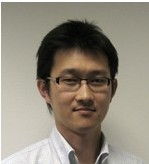NEC: Communication standards remain a major challenge in the meter reading industry
The meter-reading industry in the crisis has not only declined, but with the intensification of the economic crisis, due to the introduction of a number of policies to boost domestic demand, it has obtained better development opportunities. Everyone has realized the importance of energy, and many semiconductor companies including NEC have also regarded energy as one of the important layouts. The aim is to start with environmentally friendly devices and to achieve environmental protection for the entire application system.
So how to achieve such a goal, EEWORLD interviewed NEC Electronics China MCU product marketing manager Toshii Matsui.

NEC Electronics China MCU Product Marketing Manager Toshi Matsui
EEWORLD: Could you please comment on the global meter reading market in 2009 and China? What is the most prominent feature of the industry?
NEC Matsui Toshiyuki: China's meter reading market is basically based on power line carrier communication, which is different from the use of wireless communication in the United States to build a smart grid. In addition, China is basically an AMR system, and Europe has evolved to AMI, which is also very different.
EEWORLD: How does the national policy of stimulating domestic demand affect the meter reading industry?
NEC Matsui Toshiyuki: The national policy of stimulating domestic demand has a strong impact on the industry. Driven by the policy investment that stimulates domestic demand, the smart grid has accelerated faster than originally planned, invigorating the domestic market.
EEWORLD: The quiet rise of wireless meter reading begins to compete with power line meter reading. How do you see the future of these two technologies?
NEC Matsui Tetsuya: Wireless meter reading centered on gas meters and water meters, expanding to electricity meters. HAN (Home area network) is still in the discussion stage, and it is still impossible to judge who will become the mainstream in the future.
EEWORLD: Was there any breakthrough in the three-meter collection in 2009? What new trends do you see?
NEC Matsui Toshiyuki: Meter reading technology has made considerable progress in electricity metering. Due to the differences in government management departments and industries, gas and water meters still require time for technical integration.
Some companies may have started testing, but without strong support from government management, growth and expansion will take a long time.
EEWORLD: In 2009, what challenges did the meter reading industry face? What do you think about the standard problem of the meter reading industry? What are your company ’s expectations for standardization?
NEC Matsui Toshiyuki: The power line carrier communication standard is still undetermined, which is a major challenge for the meter reading industry. Standardization work requires the participation of industry stakeholders. We look forward to the standard setting process being more transparent.
EEWORLD: In 2009, what innovative technologies did your company introduce in the meter reading industry? How do you evaluate some technologies? What is the most impressive thing about the meter reading industry in 2009?
NEC Matsui Toshiyuki: NEC Electronics has successively released power line carrier communication chips, a single chip µPD78F8058 series integrating RF and MCU, and a single chip µPD78F8055 series integrating measurement functions and MCU. RF is a product that we focus on promoting. We will continue and expand the promotion of supporting fields related to electricity meters.
EEWORLD: How do you view the development of the industry in 2010? What technologies and applications are you looking at?
NEC Matsui Tetsuya: There will be further development of smart grids in 2010, communication standardization and market achievements will continue to accumulate, and meter reading technology will also expand in other fields, such as gas meters, water meters, and home networks.
EEWORLD: What is your company's focus in 2010? How to promote the development of these fields?
NEC Matsui Toshiyuki: NEC Electronics ’market strategy is to start with environmentally friendly devices, and then realize the environmental protection of application systems, and ultimately the environmental protection of social infrastructure. That is to say, from the previous device-only (MCU and optocoupler) environmental protection strategy, to the promotion of low-power measurement IC + MCU products and communication ICs, to the environmental protection applications using these reference solutions, and ultimately to realize the social foundation of smart grid Environmental protection dream of facility construction. To this end, NEC Electronics will, like other companies, provide the communication technology and experience that we have successfully applied overseas, especially in the US smart grid, to Chinese watch customers and contribute to China's green environmental protection cause.
Media Converter And Optical Fiber Switch
Media Converter Optical Fiber Switch fiber optic switcher
Media Converter,Optical Fiber Switch,Fiber Optic Switcher
Chinasky Electronics Co., Ltd. , https://www.chinaskyswitches.com
